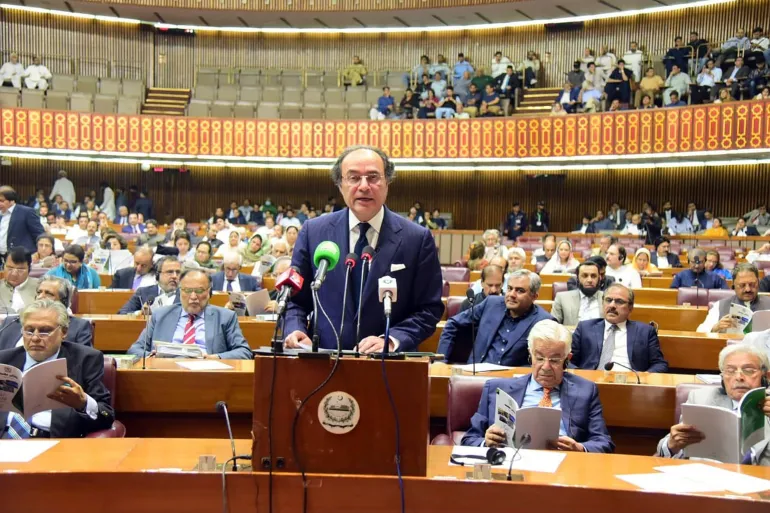Pakistan’s federal government is planning a 20 percent increase in its defence budget for the 2025–2026 fiscal year, with Finance Minister Muhammad Aurangzeb indicating that new revenue generation measures will be introduced to support the sharp rise in military expenditure.
The announcement, made ahead of the upcoming federal budget presentation, comes amid economic strain and negotiations with the International Monetary Fund (IMF) for a new long-term financial package. The proposed increase in defence spending raises questions over how the government intends to balance its military needs with the broader economic challenges facing the country.
Pakistan’s military is already one of the largest in the world, and defence spending typically consumes a significant share of the national budget. In the current fiscal year, defence outlays amounted to 1.8 trillion Pakistani rupees (approximately $6.4 billion). The 20 percent proposed hike would bring the figure to over 2.1 trillion rupees (about $7.5 billion), according to analysts.
Finance Minister Aurangzeb has not yet publicly detailed which areas of the defence sector will receive the additional funding, but officials suggest that increased costs related to border security, procurement of new equipment, and salaries are among the key drivers. The defence budget also includes pensions for retired military personnel and infrastructure spending for cantonments and other military installations.
To fund the increase, the government is expected to introduce a range of new tax measures, including broadening the tax base and improving tax collection mechanisms. Aurangzeb has previously stressed that Pakistan’s current tax-to-GDP ratio—among the lowest in the region—needs to be improved. Recent reports suggest the government is working to include previously untaxed sectors in the formal economy, such as retail and agriculture.
The proposed defence spending increase comes as Pakistan continues to negotiate a multi-billion dollar bailout with the IMF. The IMF has repeatedly urged Pakistan to reduce its fiscal deficit and improve its revenue collection, particularly through structural reforms in tax administration and energy pricing.
Critics warn that increasing military spending without corresponding cuts or reforms in other areas could jeopardize economic recovery and deepen public frustration. “In the current economic climate, where inflation remains high and the cost of living is surging, increasing defence spending by such a margin without transparent justification is hard to defend,” said economist Dr. Kaiser Bengali.
The government argues that national security needs must be met, especially with ongoing border tensions with India, internal security threats from militant groups, and growing geopolitical uncertainty in the region. Military officials have also pointed to modernization needs as the country faces new types of warfare, including cyber threats and drone technology.
Despite the economic challenges, the military remains one of the most influential institutions in Pakistan. Observers note that no civilian government has dared to substantially cut defence spending, and the military’s clout has historically ensured a steady flow of budgetary allocations.
Alongside the defence budget increase, the government is expected to unveil additional spending on development and social safety nets to address public dissatisfaction. However, many fear these areas may receive less focus as fiscal pressure mounts.
Aurangzeb has said that the upcoming budget will seek to balance “fiscal responsibility with economic needs,” adding that the government aims to pursue a growth-oriented strategy while keeping the IMF’s requirements in mind.
In the coming weeks, attention will shift to the National Assembly, where the budget will be debated and approved. With rising debt levels, an inflation rate hovering around 20 percent, and limited room for maneuver, the government’s ability to fund a larger defence budget without deepening the economic crisis remains uncertain.
The final details of the budget are expected to be revealed when Aurangzeb presents the government’s full financial plan later this month. The outcome of these decisions could shape Pakistan’s economic trajectory—and its political stability—for the months to come.
Source: Al Jazeera



